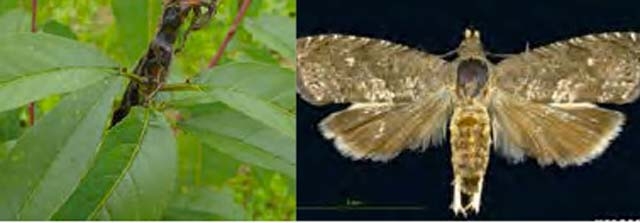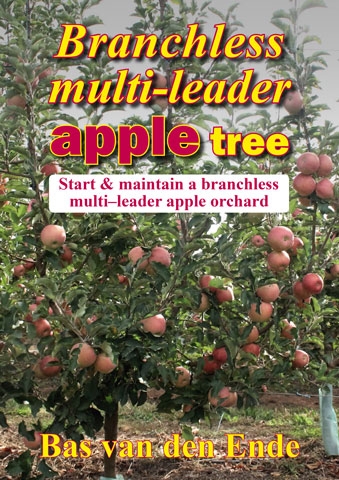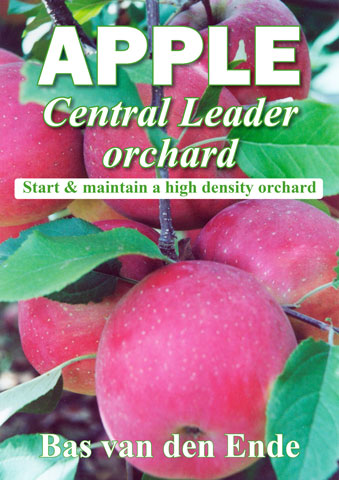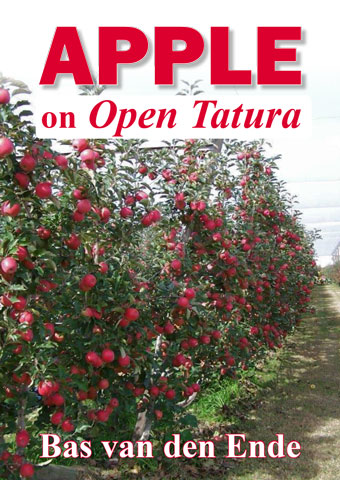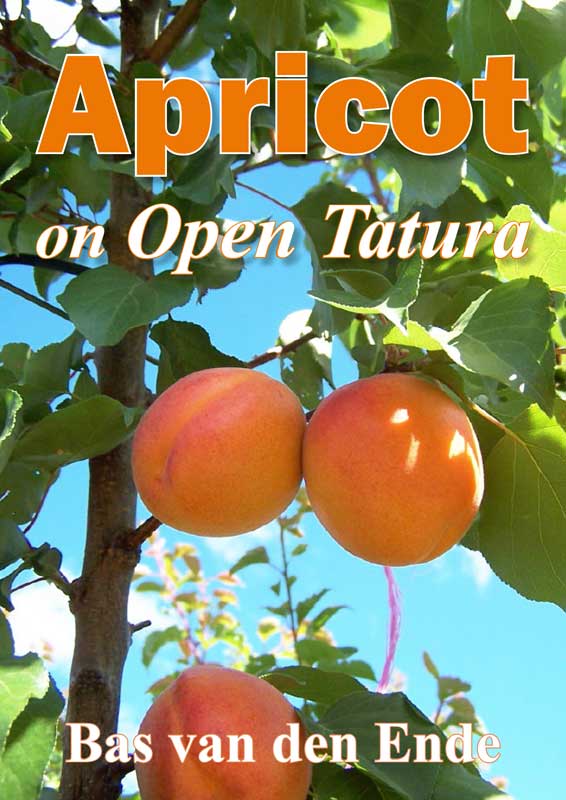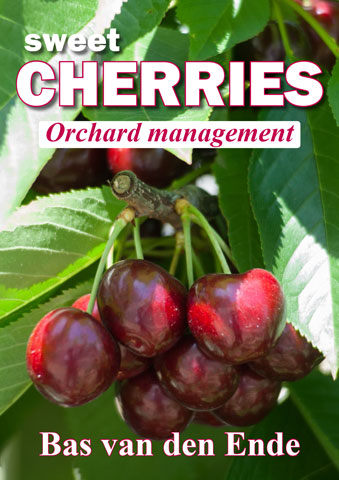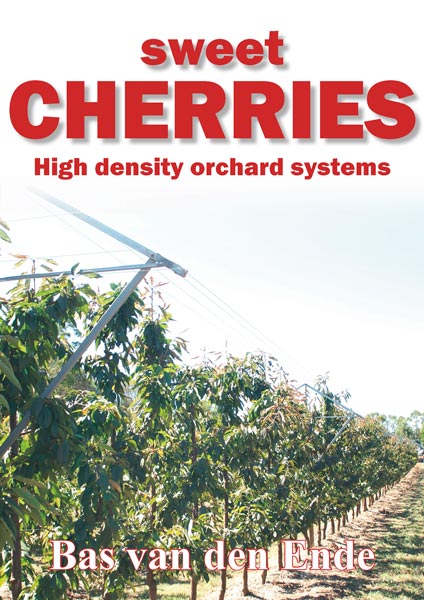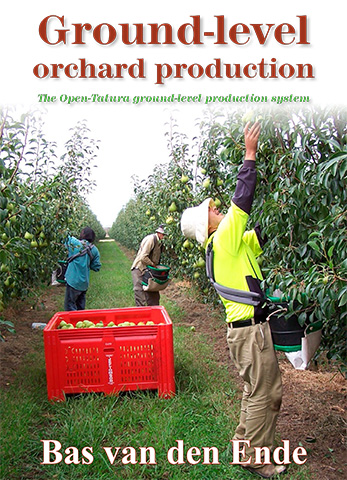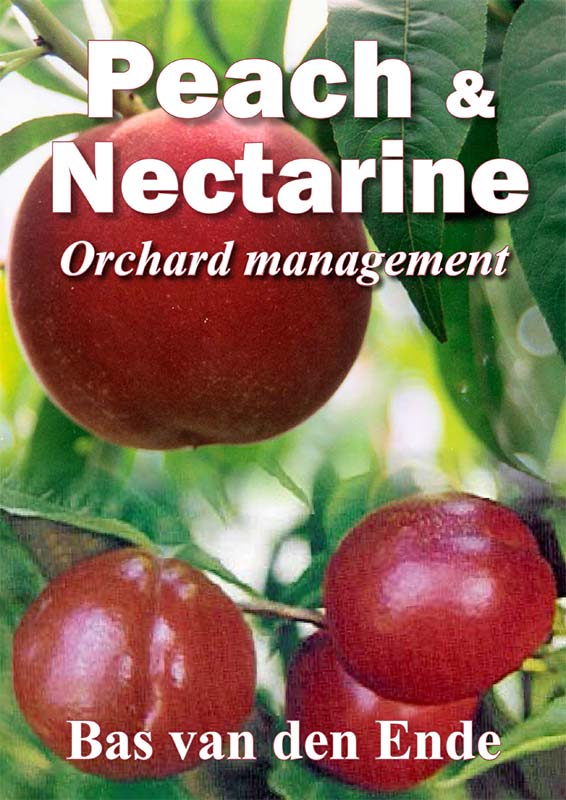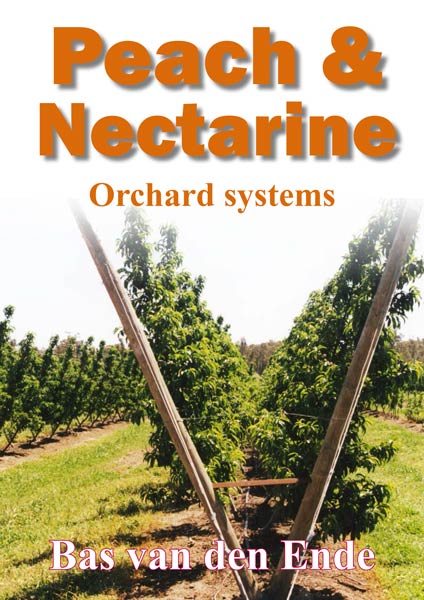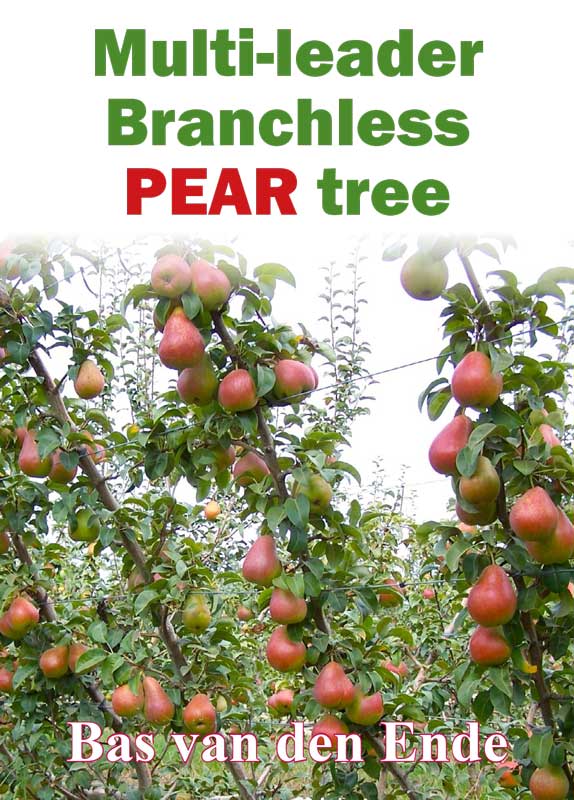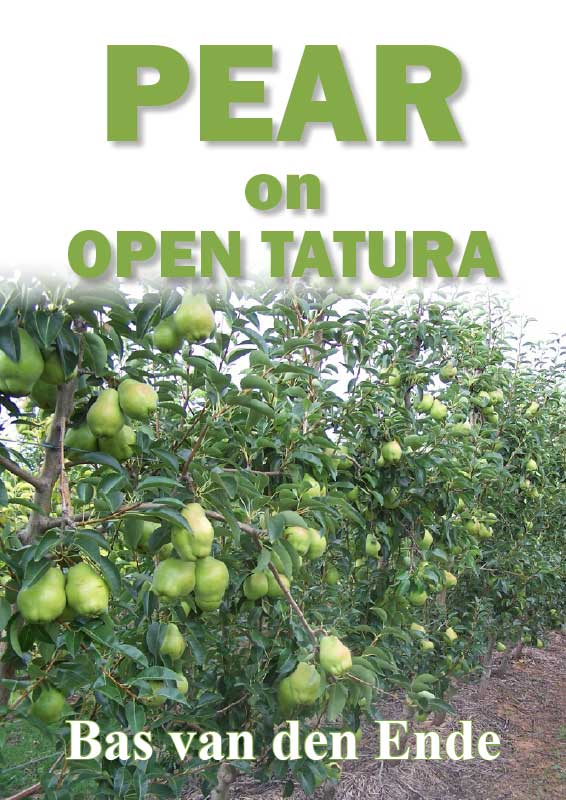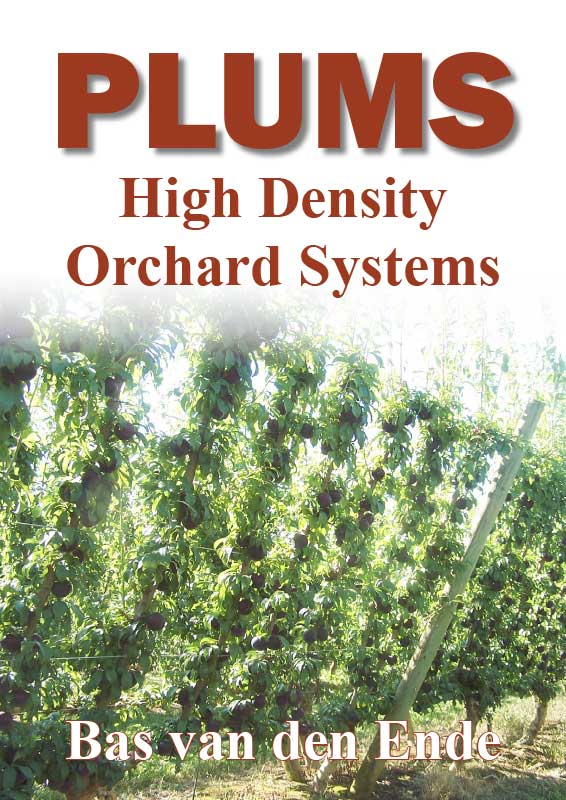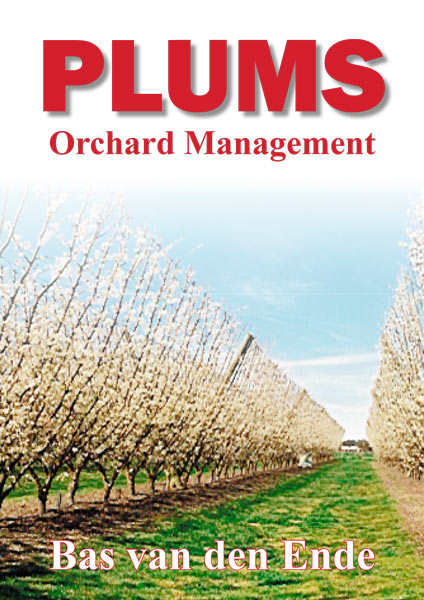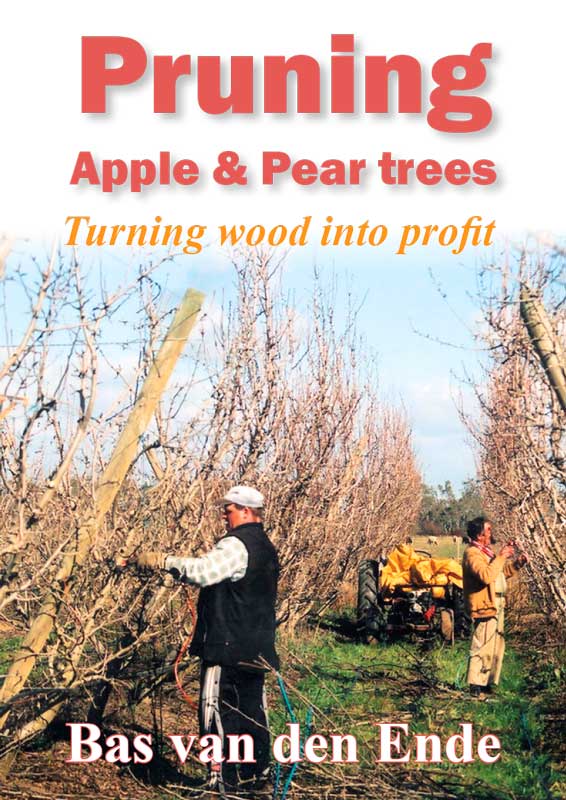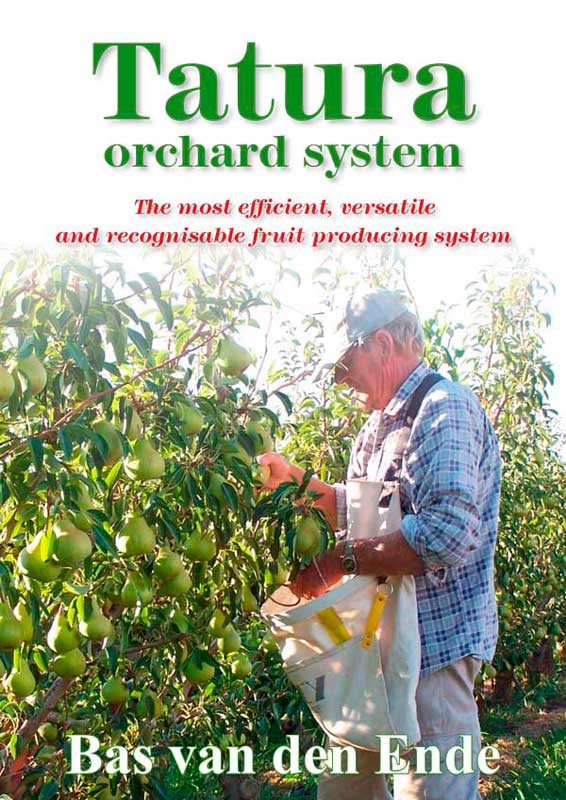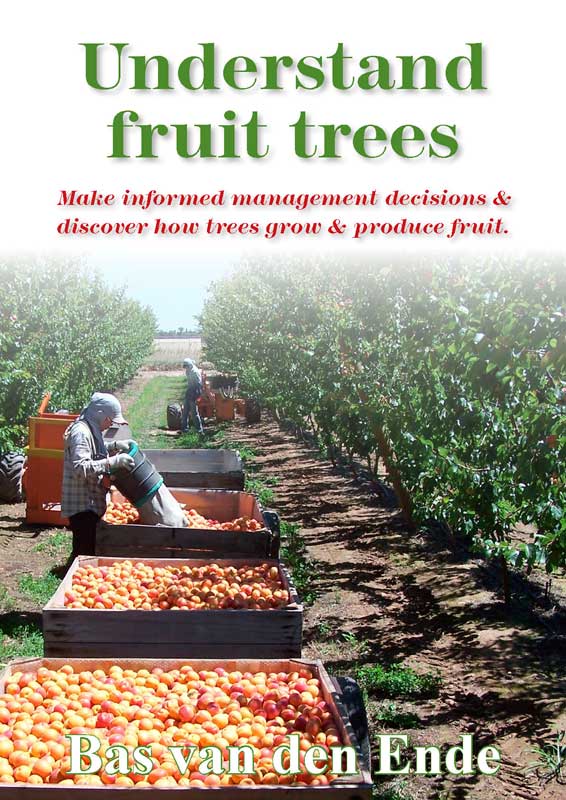Warm, moist conditions that favour tree growth and brown rot also favour the oriental fruit moth (OFM).
Hot, dry, windy conditions are unfavourable for the moth and can reduce heavy infestations in spring. Cold winters can reduce the carry over population.
OFM is usually found in stone fruit but has become a problem in pears and apples in Victoria. OFM damage appears as black wilted tube tips.
Non-pesticide management
Mating disruption may replace the need for pesticide application for OFM. Mating disruption works best for orchards:
•that are isolated from other pome fruit or stone fruit orchards
•that are part of an area-wide management scheme
•where migration and internal sources of OFM can be controlled
•where OFM numbers are low but cause sufficient damage to warrant investment in mating disruption.
Good orchard management can help with OFM control
Smooth-barked, calm, well-managed trees will generally only support lower populations of OFM, so reduce tree vigour where this is practical.
Disinfect wooden storage bins before moths emerge in spring.
Destroy large prunings and remove all fruit from trees that is left after harvest.
Any trees that have been bulldozed should be burnt.
Encourage neighbours to clean up neglected orchards.
Download the Orchard plant protection guide
See this article in Tree Fruit Oct 2019
